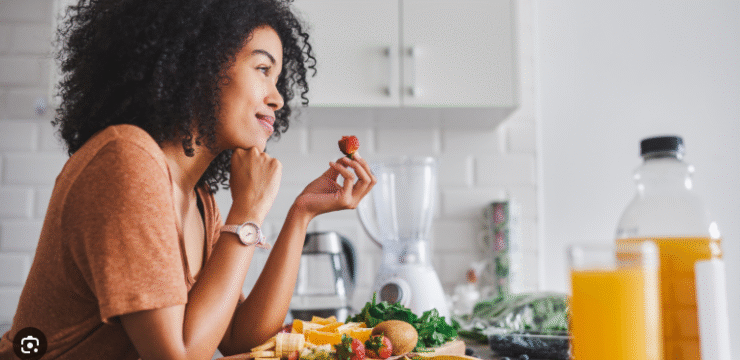1. Grilled Salmon with Steamed Vegetables
Salmon is rich in protein and omega-3 fatty acids, which may help promote satiety and support overall heart health. Pairing it with non-starchy vegetables like broccoli, asparagus, or zucchini provides fiber without excess calories.
2. Chicken Breast with Quinoa and Spinach
A lean source of protein like chicken breast helps preserve muscle mass while you manage your weight. Quinoa adds slow-digesting carbs and extra protein, while spinach provides vitamins, minerals, and antioxidants.
3. Vegetable Stir-Fry with Tofu
Tofu offers plant-based protein and is low in saturated fat. Cooking it with colorful vegetables such as bell peppers, carrots, and snap peas creates a nutrient-packed, low-calorie meal. Use a small amount of olive oil or sesame oil for flavor.
4. Lentil Soup with a Side Salad
Lentils are high in fiber and plant protein, helping you feel fuller for longer. A fresh side salad with olive oil dressing adds healthy fats and extra nutrients.
5. Baked Turkey Meatballs with Roasted Brussels Sprouts
Turkey is a lean protein source that pairs well with roasted vegetables. Brussels sprouts are fiber-rich and naturally low in calories, making them a great dinner vegetable choice.
6. Grilled Shrimp with Brown Rice and Mixed Greens
Shrimp is low in calories but high in protein, while brown rice provides whole-grain energy. Mixed greens add freshness and important micronutrients to round out the meal.
Tips for a Fat-Loss–Friendly Dinner
- Focus on lean protein to help preserve muscle and support satiety.
- Fill half your plate with vegetables to keep meals nutrient-dense and low in calories.
- Limit heavy sauces and fried foods to reduce excess fats and sugars.
- Avoid oversized portions to keep calorie intake in check.
- Eat at least 2–3 hours before bed to give your body time to digest.






